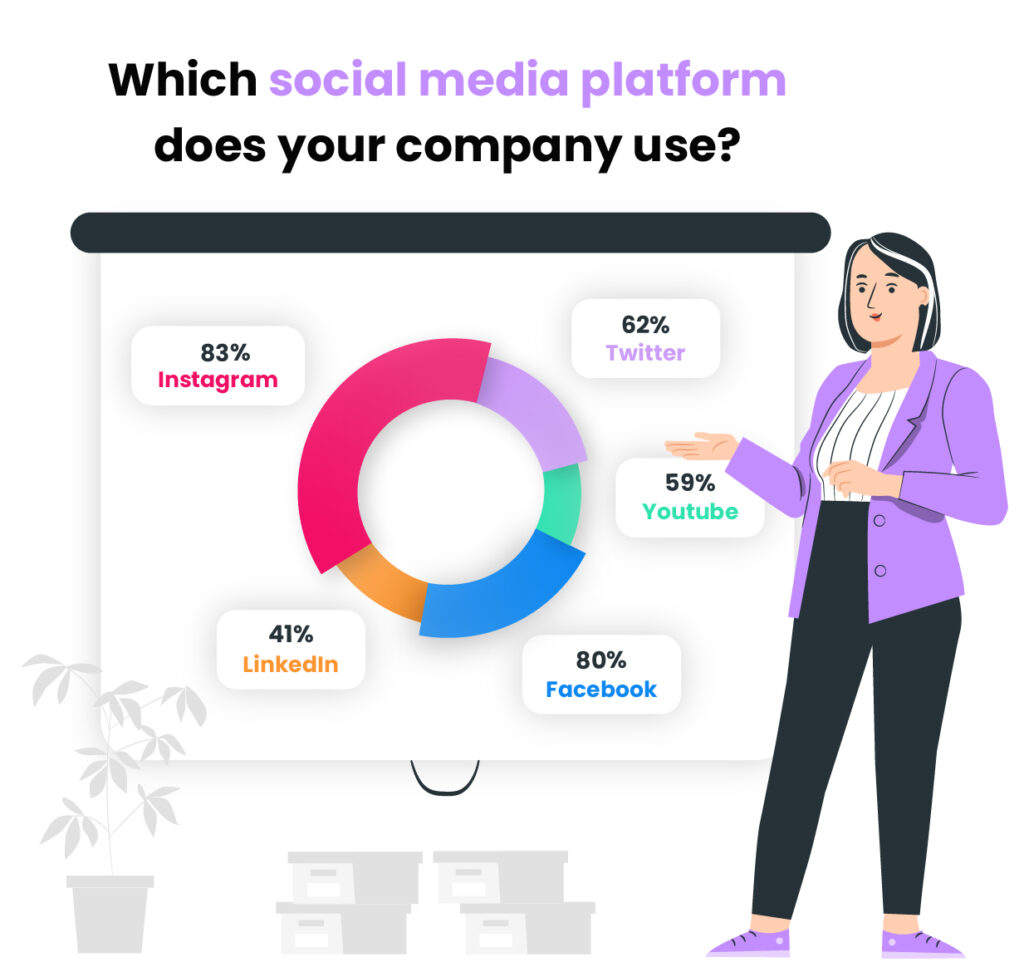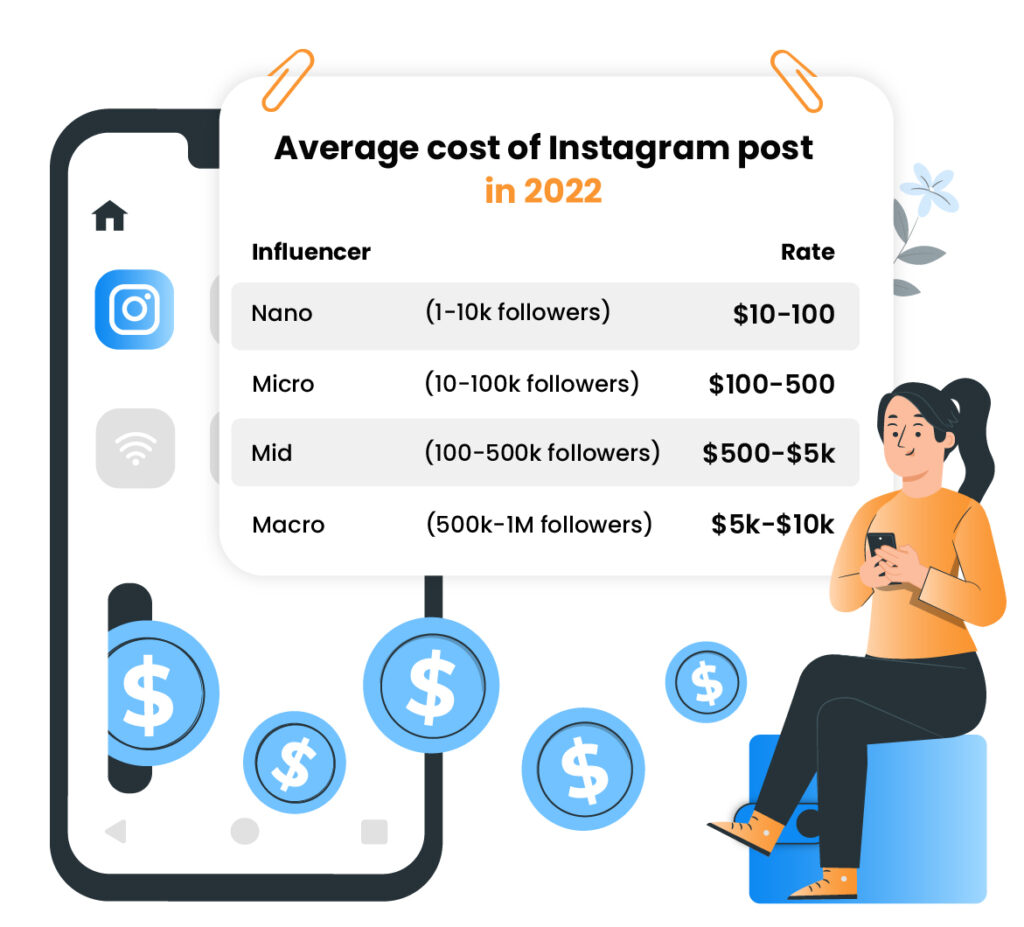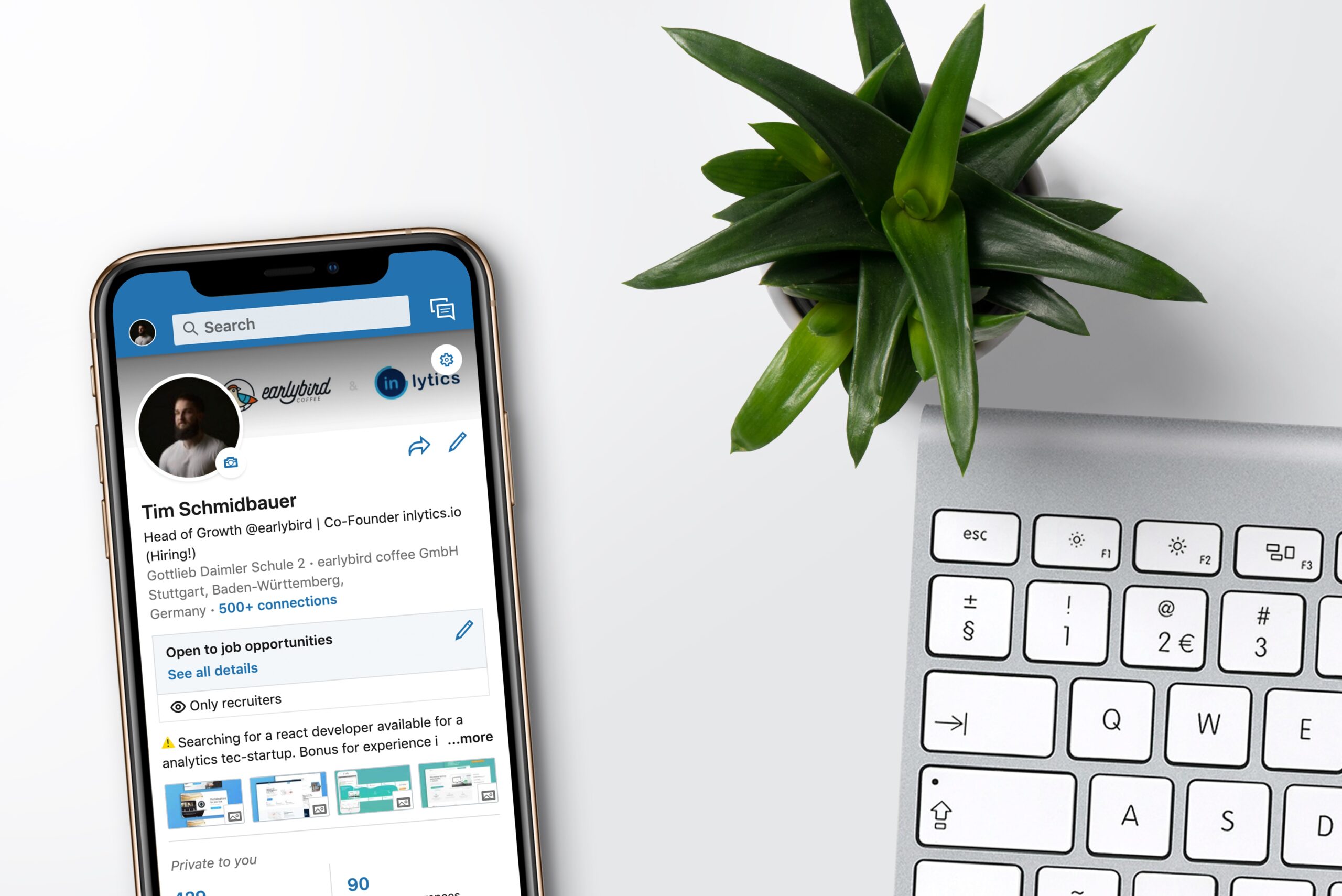The impact of social media on our day to day lives is immense – and businesses know that by using social media they can boost sales, help raise brand awareness, and drive traffic or conversions.
As an affiliate marketer, this is not something that you want to miss out on. You need to be active on social media every single day to promote your vendor’s products and services. After all, reaching almost half of the world’s population (45% to be exact) may not be possible on other communication channels, but it is on social media.
However, the challenge with social media is that there are many platforms to choose from. Which networks are worth your time, and which should you stay away from?
Today we’re going to break a few things down for you.
First, we’ll pinpoint what to verify before you start your affiliate marketing efforts on social media. Then, we’ll take each social media platform under a magnifying glass and evaluate the niches they could be most successful for.

What to consider when choosing social media platforms for affiliate marketing promotions
Business is business, which is why you should put your personal preferences aside.
If you like Instagram and know how it works, it might turn out to be your perfect platform for affiliate marketing promotion. If there’s no match between Instagram and your audience or product though, you should steer clear.
Ask yourself a few questions:
- What social media platforms are my target groups on? Where do they build their communities?
- Where do my competitors promote their services and products? Is their promotion successful?
- Where, in general, is my niche visible on the Internet?
- What is my experience on these platforms? If I encounter any technical issues, do I know how to resolve them? Do I know how to create a promotion on each platform?
Be honest with your answers, as they may indicate the direction you should take on social media.

Let’s say that your potential clients are mainly active on Facebook and Instagram, but you don’t have much experience using the latter. It may be best for you to start with Facebook, then add Instagram to your affiliate marketing strategy later.
If you want to stand out from the crowd and improve the reach and visibility of your affiliate business on social media, you may want to consider creating an app. Many enterprises are investing profoundly in social media app development and integration to avail the of unprecedented benefits. The process requires careful planning and research to ensure that critical features are present while offering users an easy interface they will appreciate using.
You’ll find more info about which social media platforms to use below, with explanations about what cases they can work best for.
Social media platforms for affiliate marketing
#1 Facebook: a universal social media platform for affiliates
Facebook is often regarded as one of the best platforms for affiliate marketers. First of all, this network offers many possibilities for organic, unpaid promotion.
Facebook allows affiliate managers to tweak their messages elsewhere – in many cases, for free. Also, there are many post types you can use for your affiliate activities, since text, photos, and videos can be combined in various forms.
There are (at least) four levels on which you can use Facebook for affiliate marketing:
- Private profiles – if your personal brand is rather strong, you can use your own Facebook profile to share some info about the products you promote.
- Facebook pages – often used by affiliates to separate their personal life (FB profile) with their professional one (FB page). They can fully showcase an affiliate’s offer and increase reach, engagement, and traffic. Posts on your Facebook page can also be boosted with paid campaigns, unlike posts on private profiles or in Facebook groups.
- Facebook groups – since Facebook is pushing communities, there are increasingly more options for affiliates to promote in some FB groups nowadays. Selling products is one thing, but building a group around a topic can be even more beneficial for a long-term affiliate marketing strategy.
- Marketplace – a Facebook feature to promote products for sale. It can be used by local affiliates in small areas.
Facebook provides detailed options for reaching recurring clients and potential new customers with paid campaigns. You can even tag products in shoppable posts to enable hassle-free checkouts for your customers. If they haven’t finished purchasing, you can retarget them with remarketing ads.
You can use Facebook regardless of your niche, but there’s something to beware of. You should thoroughly read the Advertising Policy, which indicates the sectors that promotion can be restricted for. While this mostly applies to paid content, it can also impact your organic activities.
#2 Instagram: a wonderland for B2C
Instagram is gaining popularity not only among youngsters. Actually, according to Statista, 33% of Instagram users are aged 25-34, and 16% are aged 35-44.
Instagram usually works best for B2C industries from niches such as beauty, fashion, cosmetics, travel, and food.
Instagram is a platform that mainly supports sharing photo and video content. Affiliate marketers need to understand the nature of this channel to adapt it to their own strategies. Bear in mind that your audience usually won’t have a lot of time to get familiar with your content, since they tend to have a lot to catch up with on Instagram.
You can use the following content to attract your audience:
- Instagram stories with various tags, filters, and extra features to showcase a product, service, or event.
- Shoppable posts allow you to tag your products. For this option to be enabled, you first need to add products to a catalog on Facebook and switch to a Business Account on Instagram.
- Swipe up is a feature on Instagram Business accounts that redirects a Stories viewer to a promoted site. This option is available as a paid promotion or after hitting 10k followers.
- Highlights is a feature that allows you to save your Instagram Stories so your audience can watch them even after their 24 hour expiration period.
- Links in bio is used to generate extra traffic to your affiliate website. It’s the only place on Instagram where you can link directly to your website, so make sure you use this space in the right way.

Posting standalone content is not enough, however. You still may need to boost it with some paid ads to increase its reach. You also have to interact with your potential clients on Instagram.
#3 YouTube: an affiliate marketing jungle
YouTube requires affiliate marketing managers to create videos. That’s why it’s often skipped by affiliates who have no time or resources to make, publish, and promote videos.
However, videos can be extremely beneficial. The numbers speak for themselves:
- 83% of marketers who use video in their promotional activities say they have helped generate leads. (MARKINGBLOG)
- Online videos will make up more than 82% of all consumer internet traffic by 2022, which is 15 times higher than it was in 2017. (Cisco)
- 64% of consumers will make a purchase after watching branded videos on social platforms. (Tubular Insights)
YouTube may be the best social media platform for affiliate marketers who resell software, publish tutorials, or conduct Q&A video sessions. It’s also useful for affiliates promoting beauty products (check out giveaways and unboxing videos on YouTube to see what we mean.) There are thousands of people who consume such content, and many of them would be potentially interested in watching your videos too.
Additionally, the bright side of creating videos for YouTube is that you can re-use them. Publish them on other social media channels, your landing page, or include them in your email communication.
#4 Pinterest: a (really) underrated affiliate marketing platform
Pinterest requires a time investment to make it pay off, but it can bring extraordinary results if done right, especially when considering how to use Pinterest for affiliate marketing.
For many, Pinterest is nothing more than a site with mobile phone wallpapers and home decor inspirations. However, it has one asset that not many other social media platforms offer: its positioning on Google.
Whatever your potential audience is looking for on Google, chances are pretty high that Pinterest will be one of the first results of an image search. If you spend some time organizing your Pins into collections and describing them in detail, you may see your very first results very soon.
Pinterest is ideal for both B2C and B2B products and services.
Pinterest can be a perfect fit for B2B if you focus on long-term activities. By sharing infographics, promotional materials, whitepapers, or checklists, affiliates can attract the attention of B2B buyers and drive traffic to their websites, which may increase sales as a result.
#5 LinkedIn: a business delta
This platform makes the perfect environment for affiliate marketers who work in the B2B industry.
Since LinkedIn’s audience is full of C-levels and decision-makers, it’s easy to reach them through this network. This “ease” can make it tricky though, as your affiliate marketing promotion and outreach have to be very sensitive.
In case you decide to use the latest tools to get emails from your LinkedIn connections, make sure they are verified. Otherwise, you may end up with a really low success rate and be considered a spammer.
You can build your position on LinkedIn via:
- Your private profile, especially if your personal branding is strong and you’ve already built a lot of connections.
- Company pages can be used for sharing company updates and official announcements.
- InMails – send paid messages on LinkedIn to expand your network.
- LinkedIn groups – join relevant, niche groups, and take part in forum discussions.
- Free messages can be sent when inviting someone to be your connection. You can add a personalized note to draw some attention to your invite.

Linkedin can significantly help affiliates build a great network and boost affiliate revenue. However, spammy pitches and hard-selling are a no-no on this platform.
And what about…?
There are, of course, many more platforms that might grab your attention. Let us list just a few platforms that didn’t make the top 5:
- Twitter can help you build relations with the media or journalists. Making it your priority selling channel can be rather challenging though, as it follows its own rules.
- TikTok requires more than just knowing a product and creating a video about it.
You need to fully immerse yourself in a platform that’s mainly dominated by Gen Z to gain more audience engagement. However, if they are (or soon will be) your exact target group, then you may want to at least register and take a look around. - Snapchat, due to its fleeting nature, may not be the best choice for regular affiliate marketing activities. Since content disappears quickly, affiliate managers may struggle with generating some substantial reach around it.
Over to you
Social media offers endless possibilities for affiliate marketers. After all, these platforms connect billions of people from all around the world! The sooner you identify the best social media platforms and start using them for affiliate promotion, the sooner you can achieve success. You may also get to know your target audience even better, allowing you to draw some conclusions that can be applied to your overall strategy.
Good luck!
Frequently Asked Questions
Can I be an affiliate on Instagram?
Yes, you can be an affiliate on Instagram by joining affiliate programs and promoting products or services through your account.
Can I be an affiliate on Instagram?
Yes, you can be an affiliate on Instagram by joining affiliate programs and promoting products or services through your account.
Share this article
The leader in Affiliate software
Post Affiliate Pro offers a comprehensive affiliate software platform to manage multiple affiliate programs with ease. Enjoy no setup fees, 24/7 customer support, and a free 1-month trial. Ideal for small and large businesses, it features precise tracking, automated workflows, and customizable tools to boost your affiliate marketing success. Try it now and streamline your affiliate operations effortlessly!
How To Find Affiliates to Sell Your Products
Discover over 10 successful strategies for finding high-quality affiliates in 2024 to boost your product sales. Learn to leverage influencers, join affiliate networks, and enhance your reach through SEO and social media. Maximize revenue with transparency and ongoing monitoring in your affiliate marketing program.
6 reasons to use a third-party affiliate management system
Discover the top 6 reasons to invest in a third-party affiliate management system. Simplify your affiliate marketing with automated tracking, fraud detection, and user-friendly solutions that save time and reduce costs. Boost your business's efficiency and gain more control over your affiliate programs today.
Affiliate networks vs. affiliate tracking software
Explore the key differences between affiliate networks and affiliate tracking software to streamline your affiliate marketing operations. Discover which solution offers the best automation, control, and efficiency for your program. Make an informed choice to optimize your revenue strategy.
9 affiliate marketing tools that’ll help you run your affiliate program
Discover 9 essential tools to supercharge your affiliate marketing program! From visual content creation with Visme to comprehensive management with Post Affiliate Pro and audience insights via Smartlook, these tools will boost your sales and refine your strategy. Dive in to maximize your affiliate success!
Top booming affiliate niches of 2025
Discover the top booming affiliate niches of 2023 and maximize your revenue with Post Affiliate Pro! From health and veganism to gaming and luxury goods, explore the most lucrative industries to align with your brand and audience. Unleash the potential of affiliate marketing by choosing the right niche today!












